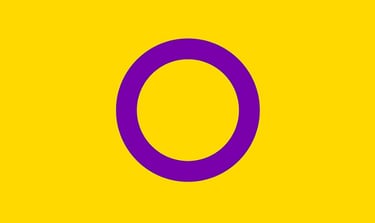Regulation of the Speech Pathology Profession in Australia
Regulation of the speech pathology profession has evolved significantly over time with many changes at the Commonwealth, State, Territory, and organisational level.
The below information is provided to help provide an overview of relevant regulatory frameworks in Australia and may not reflect legal interpretations, changes, or ammendments.
National Registration and Accreditation Scheme
National Code of Conduct for Health Care Workers
Speech Pathology Australia
Health Insurance and Rebates
Professional Indemnity Insurance
Complaints about a speech pathologist
State and territory governments established the National Registration and Accreditation Scheme (NRAS) for health professionals in 2010 by introducing consistent legislation in all Australian states and territories. The scheme is made up of the following:
Accreditation Authorities and Committees which are responsible for accrediting programs of study.
National Boards which are responsible for approving programs of study for entry into their profession, for registering professionals and students, as well as managing registration standards for their professions. Registration standards include:
criminal history registration standard,
English language skills registration standard,
recency of practice registration standard,
continuing professional development registration standard, and
professional indemnity insurance registration standard.
The Australian Health Professional Regulation Agency (AHPRA) which works with accreditation authorities and committees, provides policy advice to the National Boards about registration standards, manages registration in partnership with the National Boards, manages complaints, and monitors and audits registered health professionals.
The NRAS regulates 16 health professions and protects the titles of these health professions. Only registered health professionals can use protected titles (e.g., psychologist, occupational therapist). Speech pathology is a not a regulated health profession under the NRAS and does not have a protected title. For further information about the NRAS visit www.ahpra.gov.au/.
National Registration and Accreditation Scheme
The Council of Australian Governments’ (COAG) health ministers endorsed the National Code of Conduct for Health Care Workers (the National Code) on 17 April 2015. The National Code aims to strengthen regulation of health professionals not regulated by the NRAS by introducing consistent legislation in all Australian states and territories that sets minimum standards of conduct.
Each state and territory has established a statutory authority with the responsibility to implement the National Code by receiving complaints, undertaking investigations, and issuing prohibition orders when necessary.
The National Code regulates health professionals not regulated by the NRAS, and registered health professionals under the NRAS who provide health services that are not within the scope of their registration. As speech pathology is a not a regulated health profession under the NRAS, statutory regulation of speech pathologists falls under the National Code.
For further information about the National Code, please refer to the appropriate authority in your state or territory below:
National Code of Conduct for Health Care Workers

Australian Capital Territory
The ACT Human Rights Commission
www.hrc.act.gov.au/health
Western Australia
Health and Disability Services Complaints Office
www.hadsco.wa.gov.au
New South Wales
The Health Care Complaints Commission
www.hccc.nsw.gov.au/
Northern Territory
The Health and Community Services Complaints Commission
www.hcscc.nt.gov.au/
Queensland
Office of the Health Ombudsman
www.oho.qld.gov.au/
South Australia
The Office of the Health and Community Services Complaints Commissioner
www.hcscc.sa.gov.au/
Tasmania
Health Complaints Commissioner Tasmania
www.healthcomplaints.tas.gov.au/
Victoria
Health Complaints Commissioner
www.hcc.vic.gov.au/
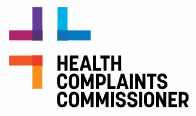





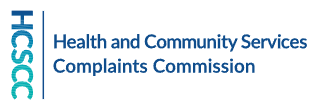



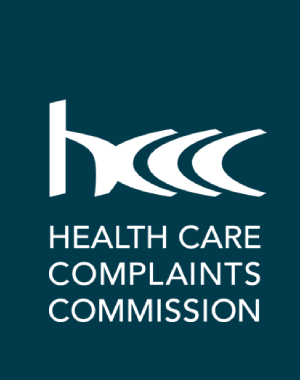

Speech Pathology Australia
Speech Pathology Australia (SPA) is a national organisation that aims to represent the speech pathology profession in Australia. It provides the following services for a fee:
membership for speech pathologists,
'Certified Practising Speech Pathologist' (CPSP) status,
accreditation of speech pathology programs of study in Australia for CPSP status, and
assessment of overseas qualifications for CPSP status.
CPSP status, accreditation, and assessment of overseas qualifications are part of SPA's self-regulation services.
In regards to CPSP status, SPA states in Policy 10.08:
"The granting of certified speech pathologist status is an indicator that a speech pathologist has represented to Speech Pathology Australia that they have completed certain education and experience and satisfied other requirements. However, certification is not a guarantee or assurance of the competence or ability of any particular speech pathologist. Further, given that Speech Pathology Australia does not examine or assess any applicant for certification, Speech Pathology Australia does not represent or warrant in any manner that a certified speech pathologist is competent in their field(s) of speech pathology practice. Anyone using the services of a person who has been certified under this policy should rely on his or her own independent judgment about these matters."
For further information about SPA visit www.speechpathologyaustralia.org.au/
Public and private health insurers provide rebates for health services when clients see a 'recognised' provider. As there is no statutory accreditation authority or committee, or statutory national board for speech pathology in Australia, many public and private health insurers use CPSP status to determine eligibility for becoming a 'recognised' provider. A speech pathologist's status as a 'recognised' provider only determines whether a health insurance rebate is applicable.
Department of Veteran Affairs (DVA)
Speech pathologists require a Medicare Provider Number in order to register with the DVA. See Medicare requirements below.
www.dva.gov.au/
Medicare
Speech pathologists require a Medicare Provider Number in order for their services to qualify for a Medicare rebate. Eligibility requirements for a Medicare Provider Number are set out in the Health Insurance (Allied Health Services) Determination 2014. The requirement for speech pathologists is Certified Practising Speech Pathologist (CPSP) status with SPA.
www.servicesaustralia.gov.au
NDIS
Unregistered NDIS providers are required to comply with the NDIS Code of Conduct. Registered NDIS providers are required to comply with the NDIS Code of Conduct and the NDIS Practice Standards.
NDIS Code of Conduct
The NDIS Code of Conduct requires the provision of services consistent with relevant professional codes where a worker is a member of a professional association or other relevant body with existing professional codes of conduct. There is no stated requirement to be a member or Certified Practising Speech Pathologist (CPSP) with SPA.NDIS Practice Standards
To meet the Verification Module of the NDIS Practice Standards, registered NDIS providers are required to "provide evidence that each individual who will deliver supports has met the corresponding requirements for their profession(s) and registration group(s)." The requirement for speech pathologists is Certified Practising Speech Pathologist (CPSP) status with SPA.
When invoicing clients for therapy supports using NDIS line items, the appropriate therapy support items should be used as defined in the Pricing Arrangements and Price Limits document. The Pricing Arrangements and Price Limits 2024-2025 document uses the following definitions:
Speech Pathologist – A person who is a Certified Practising Speech Pathologist (CPSP) as approved by Speech Pathology Australia.
Other Professional – A person who does not meet the definition of the types of professionals listed (such as above) but who the provider considers to be an appropriate professional to deliver supports.
Private Health Insurers
Most private health insurers require a Medicare Provider Number for health services to attract a private health insurance rebate. See Medicare requirements above.
Health insurance and rebates
Under the National Code, speech pathologists are required to have appropriate indemnity insurance arrangements in place that cover them for the services they provide.
Speech pathologists should consider their circumstances and seek legal advice as needed to determine appropriate Professional Indemnity, Public Liability, and/or Products Liability insurance cover.
Insurers usually require health practitioners to declare that they hold registrations, accreditations, and/or certifications where applicable with appropriate authorities in the state/s in which they practise and to maintain such registrations, accreditations, and/or certifications for the term of the insurance policy. While speech pathologists in Australia have no statutory requirement to hold registrations, accreditations, and/or certifications with any authorities in order to practise, speech pathologists are required to hold CPSP status in order to provide some services (see health insurance and rebates) and should maintain CPSP status while they provide those services.
Professional Indemnity Insurance
Under the National Code, complaints about a speech pathologist are managed by the appropriate authority (see list of state and territory authorities). The state or territory authority may decide after an assessment whether to close the complaint, refer to a more appropriate authority, mediate an outcome, or undertake an investigation.
If considered serious, the state or territory authority may make an Interim Prohibition Order to temporarily prohibit a speech pathologist from providing all or part of a health service, or place conditions on the provision of the health service while an investigation is being conducted.
A speech pathologist may be permanently prohibited from providing any health service to avoid a serious risk to the health, safety, or welfare of the public with a Prohibition Order.
Complaints About a Speech Pathologist




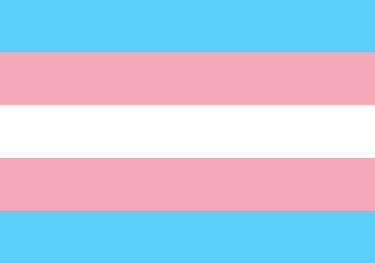
I acknowledge the Whadjuk Noongar people as the traditional custodians of the land and waters where I live and practice on, and respect their continuing language, culture, connection to country, and contribution to the life of our local communities.
I acknowledge and celebrate the diversity that enriches our local communities.
Copyright ©2025
